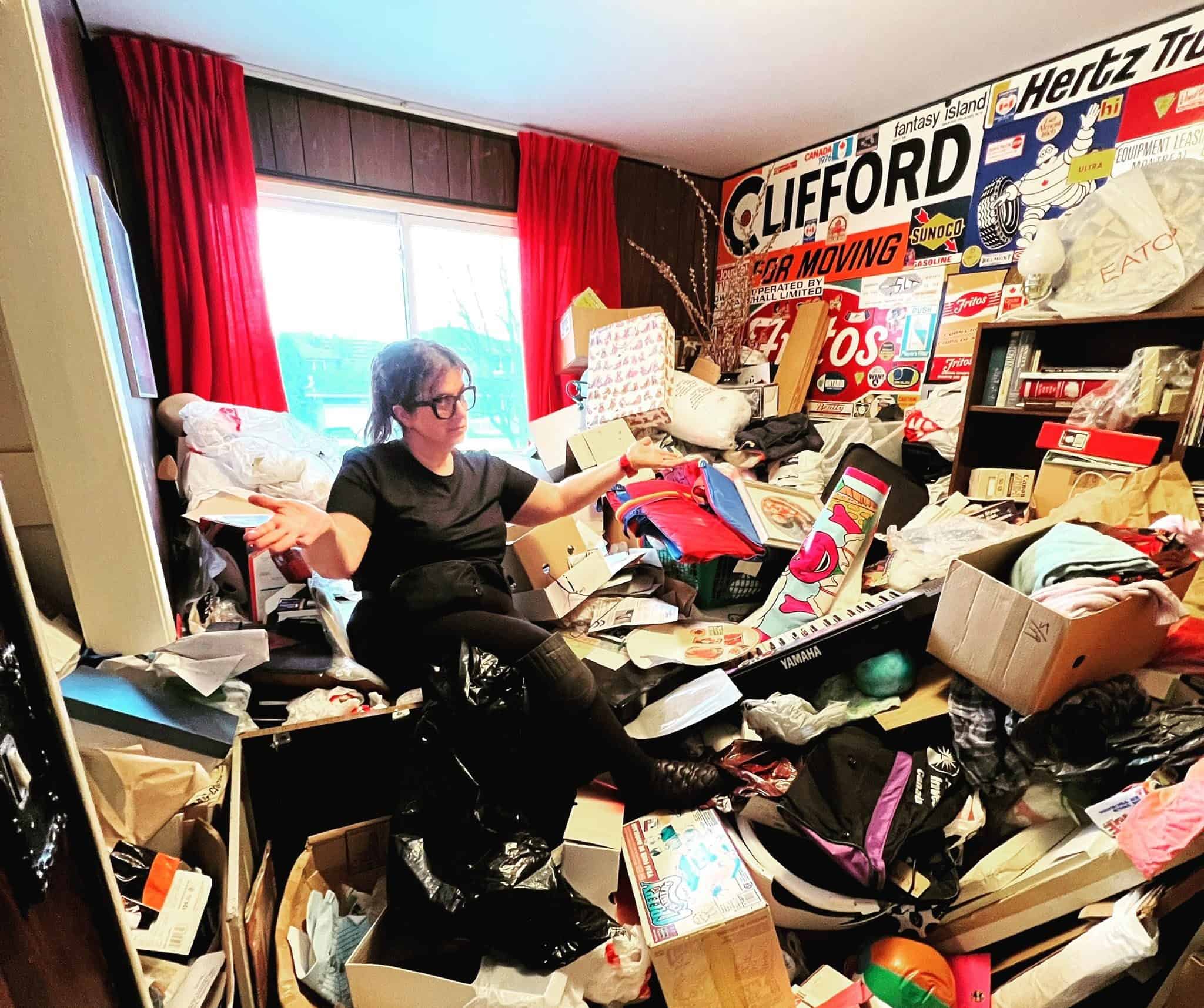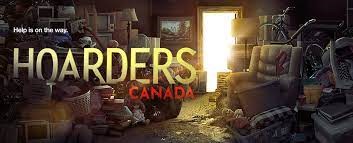Whitby ‘Professional Organizer’ gets star turn on two Hoarders Canada episodes
Published April 18, 2023 at 9:05 am

A professional organizer from Whitby who appeared on two episodes of the Hoarders Canada television show believes one of the biggest barriers to seeking help with hoarding and de-cluttering is its stigma, which can lead to shame and embarrassment.
“People may feel like organization is a moral imperative and feel like they have failed if their home is cluttered,” said Effy Terry, who is also a life coach and public speaker. “It’s important to emphasize that clutter is not a moral failing and that seeking help is a sign of strength and self-care.”
Terry ‘s primary training as a professional organizer came in handy during filming, as well as her skills in mediation and dispute resolution – all of which were used in navigating the complex challenges facing the participants.
“While Hoarders Canada is a television show, the participants on the show are real people struggling with hoarding disorder, and the situations depicted are based on real-life cases,” she explained. “Clutter and disorganization can be especially challenging for seniors and individuals with disabilities, impacting their mental health and overall well-being.”
Hoarding disorder is a recognized mental health condition and requires a clinical diagnosis by a qualified mental health professional, Terry said. Effective treatment often involves a combination of cognitive-behavioural therapy, medication, and professional organizing services.
There is often an overlap with other mental health conditions such as anxiety, depression, OCD, and ADHD, she added.
“Hoarding disorder is a complex condition that involves persistent difficulty discarding or parting with possessions, regardless of their actual value, due to a perceived need to save them or fear of losing them.”
Some common characteristics of individuals with hoarding disorder include an inability to organize possessions, indecisiveness about what to keep or discard, and difficulty letting go of objects due to emotional attachment or perceived utility. “However, every case is unique, and different underlying factors can contribute to the development of hoarding disorder, such as trauma, grief, or loss.”
Terry called the experience filming the episodes “very positive” and praised the show for the aftercare support for participants, including services from mental health professionals and other organizing experts.
“Hoarders Canada is a platform that raises awareness about hoarding disorder and provides support and resources to those struggling,” she said. “These resources are available to help participants overcome the challenges of hoarding disorder and achieve their goals in a supportive and compassionate environment.”
Having worked as a unit production manager for CBC for 27 years, Terry was familiar with location shooting and spoke highly of the production team for valuing her expertise.
“When working with hoarding clients in real life, there is no production team or cameras following my every move. However, during the show’s filming, I quickly forgot about the cameras and did my job the same way I would if no one had documented it for television,” she said. “Overall, my experience during filming was very positive.”
Terry said there are steps you can take if you believe someone close to you is suffering from hoarding behaviours.
“Preventing or mitigating hoarding behaviour involves a combination of individual and community-level interventions. From an individual perspective, seeking help from a qualified mental health professional with experience in hoarding disorder is the first step,” she explained. “Family and friends can also play an important role in supporting individuals with hoarding disorder. Encouraging them to seek help, providing emotional support, and helping them with decluttering and organizing tasks can make a significant difference. It’s important to approach the situation with empathy and understanding, as hoarding disorder can be a complex and challenging condition to overcome.”
Individuals at different stages of life can also face unique challenges with hoarding and clutter, Terry pointed out. “Someone who is downsizing or going through a major life transition may have difficulty letting go of possessions that hold sentimental value or represent a previous phase of their life. A professional organizer can help provide a fresh start and create a plan to declutter and organize their space, regardless of the cause of clutter.”
Chronic disorganization and hoarding can often co-occur with mental health conditions such as ADHD, depression, and anxiety, Terry said. “Seeking professional help from a therapist, mental health expert, and a trained professional organizer can make a significant difference in managing and improving the situation. In addition, the support of friends, family, and community resources can also play a vital role in creating a safe and supportive environment. “
The first episode of the Emmy-nominated show with Terry in it aired April 15. Her second episode will be available to watch on Makeful April 22.







